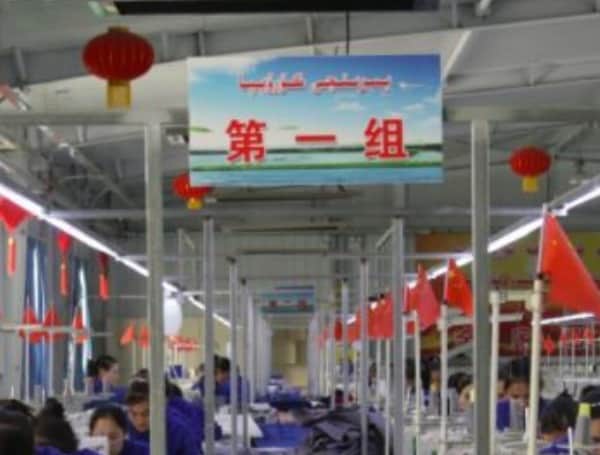Ailan Evans

The U.S. placed a ban on silicon, a material used in the manufacture of solar panels, from a Chinese company using forced labor, the White House announced Thursday.
The Biden administration instructed U.S. Customs and Border Protection to detain shipments of silica-based products made by Hoshine Silicon Industry Co., Ltd., a Chinese company located in the Uyghur home province of Xinjiang, the White House announced in a statement Thursday.
The Department of Commerce added Hoshine, along with four other Chinese companies operating in Xinjiang, to a trade blacklist for their connections to human rights abuses.
The Department of Labor also updated its notice “List of Goods Produced by Child Labor or Forced Labor” to include silicon products made in Xinjiang.
“The United States will not tolerate forced labor in our supply chains and will continue to stand up for our values and for U.S. workers and businesses,” the statement read.
“The PRC’s use of forced labor in Xinjiang is an integral part of its systematic abuses against the Uyghur population and other ethnic and religious minority groups, and addressing these abuses will remain a high priority for the Biden-Harris administration,” the statement continued.
China is by far the world’s largest producer of silicon and silica-based products, producing eight times more silicon than its nearest competitor Russia, according to the U.S. Geological Survey. Xinjiang alone produces 45% of the world’s silicon supply, according to green energy group InfoLink.
The country has parlayed its dominance into solar panel production, producing roughly 70% of the world’s solar panels and 80% of the world’s solar cells, according to a report by Bloomberg.
China has fortified its market share by employing forced labor in the production of solar products, using lowered labor costs to lower the price of its solar exports, according to the Center for Strategic & International Studies.
The White House described slave labor in the statement as an “example of the PRC’s unfair economic practices,” and hoped the new restrictions on Chinese silicon products would make domestic products more competitive.
The decision continues U.S. efforts to become more competitive with China, with the United States Innovation and Competition Act, a bill funding technological research and innovation, passing earlier this month.
Content created by The Daily Caller News Foundation is available without charge to any eligible news publisher that can provide a large audience. For licensing opportunities of our original content, please contact licensing@dailycallernewsfoundation.org.
Support journalism by clicking here to our gofundme or sign up for our free newsletter by clicking here
Android Users, Click Here To Download The Free Press App And Never Miss A Story. It’s Free And Coming To Apple Users Soon.

